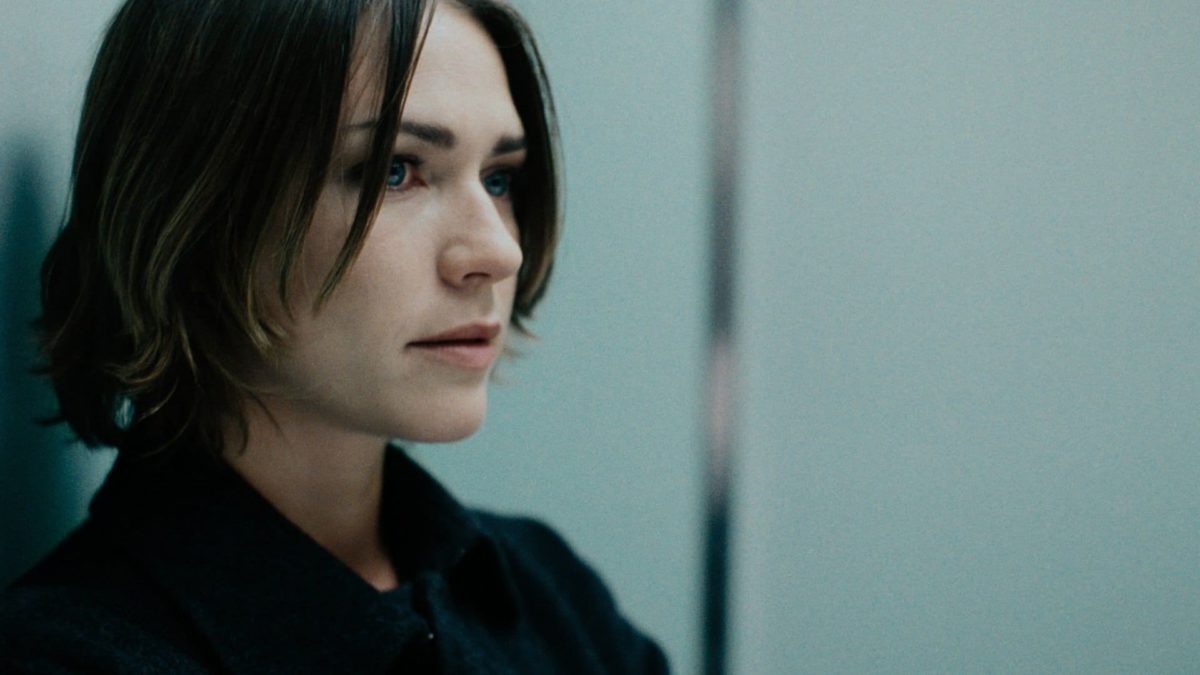A different kettle of fish
Denis Villeneuve’s second film, Maelstrom, is a bizarre odyssey that dives fearlessly into some of the darkest corners of the human experience, but with a smirk. This pitch-black drama infused with moments of comedy and whimsical fantasy is the kind of movie that feels immediately destined to become a cult classic: flawed, strongly flavored, dark, but very unique and cleverly constructed. It’s a cat’s cradle of abortion, immolation, and talking fish corpses.
As a director, Villeneuve’s talent continues to blossom with Maelstrom. He frames the story of Bibiane (Marie-Josée Croze) and her terrible, horrible, no good, very bad week with a gripping iciness and tension that embraces the bleak ironies of her situation. Villeneuve’s unique visual tone is never predictable, often zagging with a goofy set piece or image to shake up the film’s momentum. His imagery is on the razor’s edge between “evocative” and “overwrought,” but in a way that elevates the film’s sense of cosmic coincidences.

He drowns the film in icy blues leavened with toxic browns. The color palette is almost exhaustingly bichrome: blue is everything clinical and cold and lonely, while brown is everything living (or, more often, decaying). Most of the shots Villeneueve picks are richly textured close-ups, emphasizing the messiness and emotional intensity of Bibiane’s life: massaged necks, ocean waves, fish viscera, crumpled sheets, etc. He mixes in plenty of two-shots when characters fleetingly connect. And a few times, he frames a massive object center frame as some harbinger of destiny or center of gravity — a plane, a boat, a toilet, or — most memorably — a car at a literal tipping point.
As a writer, Villeneuve’s work is less polished and compelling. The numerous interconnected threads of the story, which unfolds in less than 90 minutes, rely heavily on re-telling and re-framing vignettes. This hurried approach somewhat stifles the opportunity for organic character development, focusing instead on quickly-moving incidents, resulting in a script that feels more like a gesture towards ideas rather than a nuanced portrait of the characters themselves to actually explore those ideas.
In comparison to his debut, August 32nd on Earth, Maelstrom sacrifices some shaggy personality in favor of an over-engineered narrative structure. It’s also occasionally uneven and sloppy as a story, with some ideas introduced and then abandoned without further exploration. For example, we learn about Bibiane’s struggling business and meet her overbearing mogul brother, and then they are immediately dropped as the film’s story focus shifts to life and death matters.

And yet, in that tangled mess of a script, something of a manifesto emerges from Maelstrom that I suspect, based on loglines and reputation, may echo through Villeneuve’s filmography, or at least his two remaining French Canadian works. Through this quirky story, he explores a few different ideas: The first is that violence is inherently cyclic: One brutal act inevitably leads to another. The second is that actions often have consequences that reach far beyond predictable cause-and-effect, bordering into absurdism: a sperm fertilizes an egg, an abortion is mourned with alcohol, a man is hit by a drunk driver, a tiny act sequentially expanded into something huge, like falling dominoes. And thirdly, empathy is the only healthy response to the arbitrary cruelty of violence and circumstance: when Bibiane’s lover Evian (Jean-Nicolas Verreault) accepts her love despite her many flaws, he inadvertently saves his own life.
Fourthly, and perhaps most importantly to Maelstrom, events look very different when viewed from a different angle. It’s not a Rashomon-esque subjective perception (more Kuleshov), but instead dramatic anti-irony in which events only look absurd or climactic in retrospect, when viewed (or re-viewed, in some cases) by the audience with certain new knowledge. It’s puzzle box storytelling but as a general narrative philosophy rather than a specific device.
 Maelstrom is a peculiar trifle, with Villeneuve carving out something majestic bordering on mythic in a small, dark package. And despite a slightly-too-cute structure and an uneven script — in fact, to some extent, because of them — it’s ultimately a satisfying and memorable final product. More than his actual debut, it has a statement-of-purpose feeling to it, one that firmly announces Villeneuve as an intriguing directorial talent on the cusp of becoming a real cinematic voice.
Maelstrom is a peculiar trifle, with Villeneuve carving out something majestic bordering on mythic in a small, dark package. And despite a slightly-too-cute structure and an uneven script — in fact, to some extent, because of them — it’s ultimately a satisfying and memorable final product. More than his actual debut, it has a statement-of-purpose feeling to it, one that firmly announces Villeneuve as an intriguing directorial talent on the cusp of becoming a real cinematic voice.
- Review Series: Denis Villeneuve
Is It Good?
Good (5/8)
Awards, Honors, & Rankings
Dan is the founder and head critic of The Goods. Follow Dan on Letterboxd. Join the Discord for updates and discussion.

